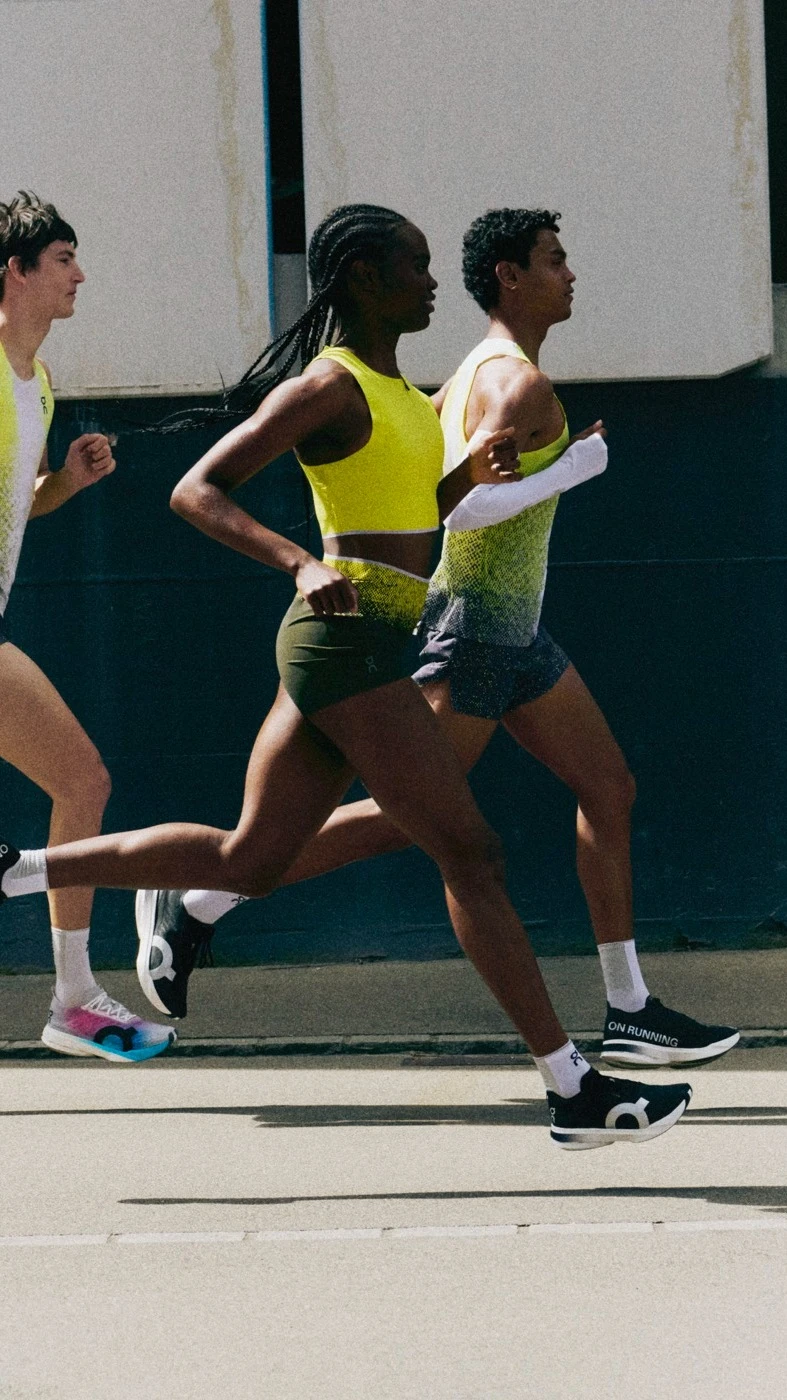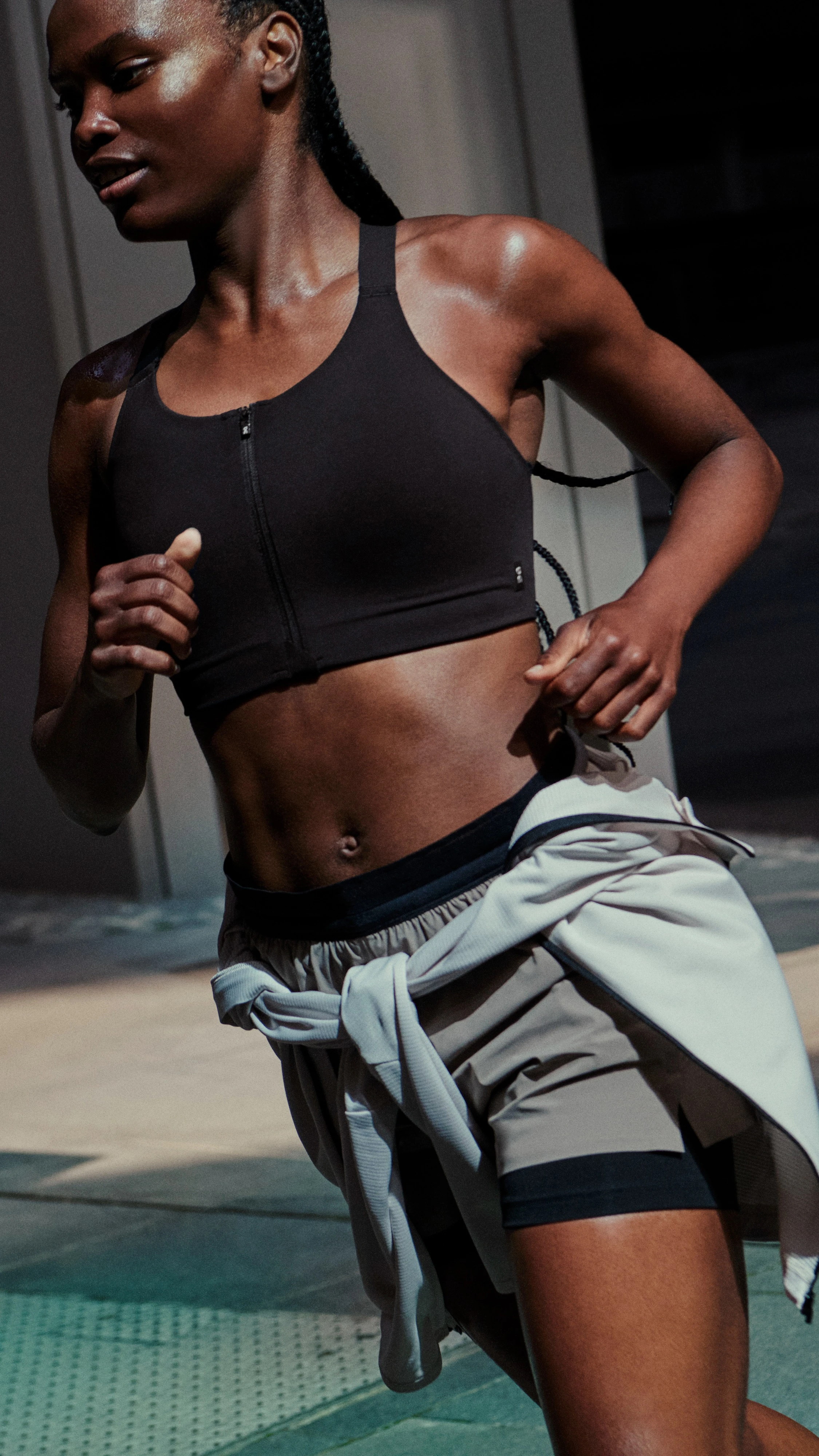

마라톤을 위한 식단은 과학적으로 계획하고 꾸준히 실천해야 합니다. 훈련 기간부터 레이스 당일 영양 전략, 회복기 식사까지 전문가 추천 영양 관리법을 알아봅니다.


첫 마라톤을 준비하든, 네 번째 마라톤에 도전하는 고수이든 몸에 어떻게 영양을 공급하느냐에 따라 시작부터 마지막 순간까지의 컨디션이 달라집니다.
올바른 영양 섭취는 퍼포먼스와 회복은 물론, 러닝 페이스까지 좌우하죠. 대부분의 러너라면 힘든 구간에서 '벽'을 마주한 경험이 있을 겁니다. 계획적으로 영양을 섭취하면 가장 중요한 순간에도 페이스를 안정적으로 유지할 수 있습니다.
이 가이드는 전문가의 실전 조언을 바탕으로, 마라톤 전·중·후에 무엇을 먹어야 하는지 쉽게 정리했습니다.
마라톤 훈련 플랜은 단순히 거리를 늘리는 것 이상의 의미가 있습니다. 무엇을 언제 먹느냐에 따라 몸이 훈련을 견디는 정도가 달라집니다. 특히 레이스를 앞둔 주간에는 더욱 중요합니다.
핵심 원칙:
- 훈련량과 강도에 따라 조절: 훈련 기간에는 단백질을 꾸준히 섭취하는 것이 회복에 도움이 됩니다. 훈련량과 강도를 높일수록 탄수화물 섭취는 더 늘려야 합니다.


레이스가 며칠 앞으로 가까워지면 대부분의 러너는 탄수화물 섭취를 늘리는 방향으로 전환합니다. 소화가 잘되는 단순 탄수화물을 선택해 글리코겐 저장량을 채우기 위해서입니다. 다음 몇 가지 사항을 기억해 두세요.
- 48시간 집중 탄수화물 섭취: 마라톤 1~2일 전에는 체중 1kg당 하루 10~12g을 섭취합니다. - 레이스 전 흔한 실수 피하기: 몸에 익숙한 음식 위주로 섭취하세요. 지방과 섬유질은 줄여 소화 부담을 덜고, 매운 음식처럼 예상치 못한 배탈을 유발할 수 있는 음식은 피하는 것이 좋습니다. 목표는 출발선에 설 때 몸이 가볍고 안정적이며 에너지가 충분한 상태를 만드는 것입니다.
마라톤 전에 마시면 좋은 음료:
수분 섭취량은 사람마다 다르지만 원칙은 간단합니다. 과하게 마시기보다 적절한 수준을 유지하는 것이죠. 추천 음료:
- 물 - 주스 - 전해질 음료 - 탄수화물과 전해질이 포함된 스포츠 음료
대회 당일에는 자연스럽게 나만의 루틴과 의식이 생기기 마련입니다. 그 흐름을 안정적으로 유지하는 방법을 정리했습니다.
- 당일 아침 식사는 익숙한 음식 먹기: 탄수화물 비중이 높고 섬유질과 지방은 적으면서 소화가 잘되는 음식을 선택합니다. 흰 식빵 토스트, 베이글, 시리얼, 잼, 과일 주스, 스포츠 음료 등이 좋습니다. 속을 불편하게 하지 않으면서 영양을 공급하는 것이 핵심이죠. - 레이스 도중에도 적절한 음식으로 영양 보충하기: 시간당 탄수화물 60~90g 섭취를 목표로 하세요. 젤이나 음료가 가장 부담이 적고, 씹는 식감을 선호한다면 에너지 츄도 괜찮습니다. - 분명한 수분 섭취 전략 세우기: 마라톤 2~4시간 전에 체중 1kg당 5~10ml의 수분을 섭취하세요. 달리는 동안에는 기온, 강도, 갈증 정도에 맞춰 조절하고 전해질 음료도 챙겨 마십니다. - 카페인 섭취 타이밍: 카페인은 레이스 후반에 섭취하세요. 완주 예상 시간 60~90분 전에 체중 1kg당 2~3mg의 카페인을 섭취하면 가장 힘든 구간에서 체감 피로를 줄이는 데 도움이 됩니다.


회복은 완주하는 순간부터 시작됩니다. 크게 두 단계로 나눠서 생각해 보세요.
-1단계 – 완주 직후(완주 후 0~60분): 식욕이 없더라도 탄수화물과 단백질을 조합하여 섭취해 보세요. 글리코겐을 보충하면 소진된 에너지를 채우고 근육 회복에 도움이 됩니다. - 2단계 – 보충 식사(완주 후 2~4시간): 탄수화물이 풍부한 음식(파스타, 쌀밥, 감자 등)에 단백질(닭고기, 생선, 두부 등)과 채소를 함께 곁들이세요. 레이스를 끝내고 먹고 싶던 음식이 있다면 이때 먹으면 좋습니다. 회복은 몸뿐만 아니라 마음에도 필요하니까요.
마라톤에 맞는 영양 섭취 방법은 사람마다 다릅니다. 목표와 취향, 소화력, 운동 경력에 따라 나에게 무엇이 가장 효과적인지 스스로 찾아가는 과정이 중요합니다. 대회 당일의 영양 전략은 평소 훈련 중에 미리 시험해 보고, 테이퍼링(훈련량 조절) 기간 동안 이 계획을 세밀하게 조정한 다음 당일에는 믿고 실천하세요.
식단 계획을 세웠다면 레이스 후반까지 함께해 줄 마라톤 용품도 찾아보세요.
대부분의 러너는 시간당 60~90g을 목표로 합니다. 엘리트 러너는 120g 가까이 섭취하기도 합니다. 장거리 러닝 중에 시험해 보면서 본인에게 맞는 섭취량을 알아보세요.
카페인이 몸에 맞다면 도움이 될 수 있습니다. 총 200~300mg(또는 체중 1kg당 3~6mg)을 섭취하면 피로를 줄이고 집중력을 끌어올리는 데 도움이 될 수 있습니다.
훈련량이 많거나 강도가 높은 날에는 에너지를 공급하고 보충하기 위해 탄수화물 섭취량을 늘려야 합니다. 회복일에도 영양 섭취는 꾸준히 하되, 탄수화물만 적당한 수준으로 줄이면 됩니다. 식단의 목표는 몸의 적응을 돕는 것이지, 섭취를 제한하는 것이 아닙니다.
소변 색이 맑거나 옅은 노란색이면 적절한 상태입니다. 출발 몇 시간 전부터는 목이 마르지 않아야 합니다.
운동 강도가 높을수록 젤과 음료가 보통 더 섭취하기 편합니다. 씹는 식감을 선호한다면 에너지츄가 나을 수 있습니다. 세 가지 모두 효과는 같습니다.